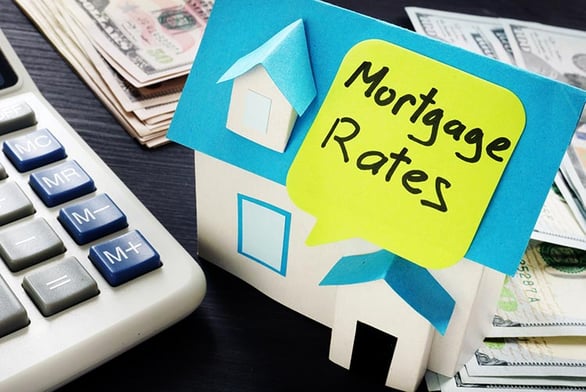
The question about mortgage interest rates is anything but simple. The interest rate that you pay for a mortgage is affected by market factors and the details of your financial situation, in addition to the purpose of the mortgage.
How do interest rates change?
Even before Congress created the U.S. Federal Reserve System in 1913, government monetary policy significantly influenced borrowing cost fluctuations in the U.S. The 10-year Treasury Yield is a primary indicator of interest rates since it displays the price of debt backed by the U.S. government. During World War II, the rate fell to a low of 1.7%, as the U.S. government injected billions into the economy to finance the war. In 1981, inflation was out of control, and Federal Reserve Chair Paul Volcker initiated a series of rate increases in the Fed funds rate until the high point of 15.8% was reached. The 10-year dropped after that, reaching an all-time low in August 2020 of 0.5%. This indicator reflected a Federal Reserve funds rate of between 0% and 0.25%, where it remains today.
What does the Fed Funds rate mean for a mortgage loan?
The Fed does not determine mortgage rates but it influences all consumer rates banks charge including mortgage rates. Fed Funds rates are short-term rates determined by the Federal Reserve. It's the rate at which banks lend money to each other on an overnight basis. These rates are lower than what a consumer can get for a mortgage or other type of loan product, but the fluctuations are reflected in changes in those consumer rates. An increase or decrease in an interest rate can dramatically influence how much of a loan a consumer can afford.
For example, a 30 year fixed loan for $250,000 at an interest rate of 4.9 percent will require a monthly payment of $1,326.82. That same $250,000 loan at an interest rate of 1.9 percent carries a monthly payment of $911.60. That is almost a 30% decrease. It's no wonder that people are eager to find the best possible interest rate for their mortgage loans or refinance an existing loan.
How do banks react to the rate changes?
Financial institutions like banks and credit unions want consumers to take on mortgages. Still, it's not in the institution's best interest to be tied to a low-interest rate for a long time. When rates are rising, banks don’t see as much activity in refinancing. In around 2004, the adjustable rate mortgage (ARM) started to gain in popularity. This financing vehicle allows the lender to adjust the rate periodically based on current prevailing rates. There are numerous variations of the product, with most having limits on how far the rate can rise.
Some of the more exotic versions (interest only, option ARMS, subprime variants, and the like) were a significant contributor to the Global Financial Crisis of 2008, as borrowers who were not prepared for resets or valuation decreases could not sustain the payments.
Does my personal credit influence the interest rate?
Definitely. The higher your credit score, the better interest rate you will be able to obtain for your mortgage (and other credit instruments you may be seeking). And that lower interest rate makes a difference in how much the loan costs you. As in the example above, a small increase in interest rate can raise the monthly payment by hundreds of dollars—and that example was using a very low loan amount by current standards. Throughout the loan, the increased cost adds up. This fact is an excellent reason to pay attention to your credit score before you prepare to buy a house (or to refinance) or make any other major purchase using credit.



